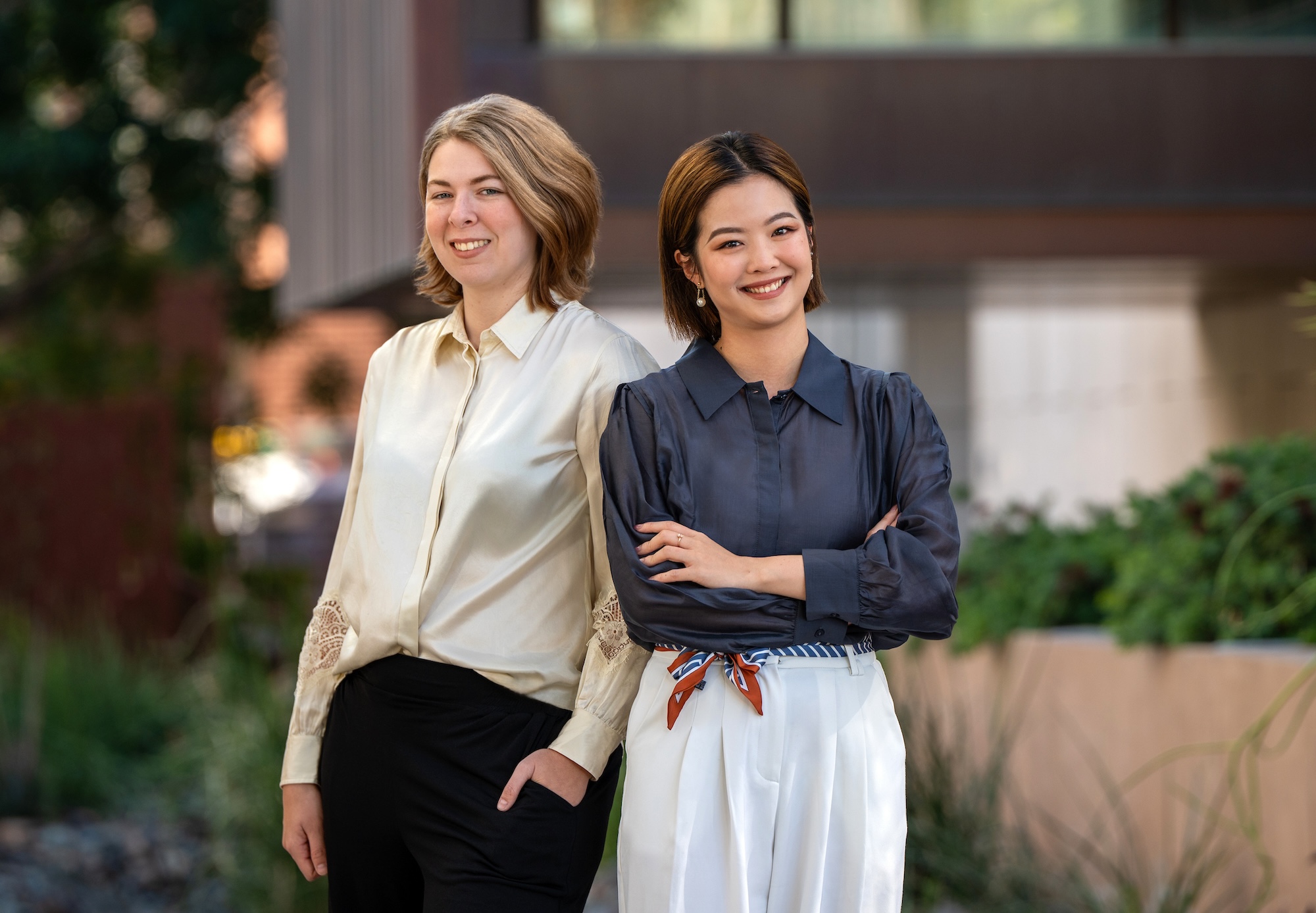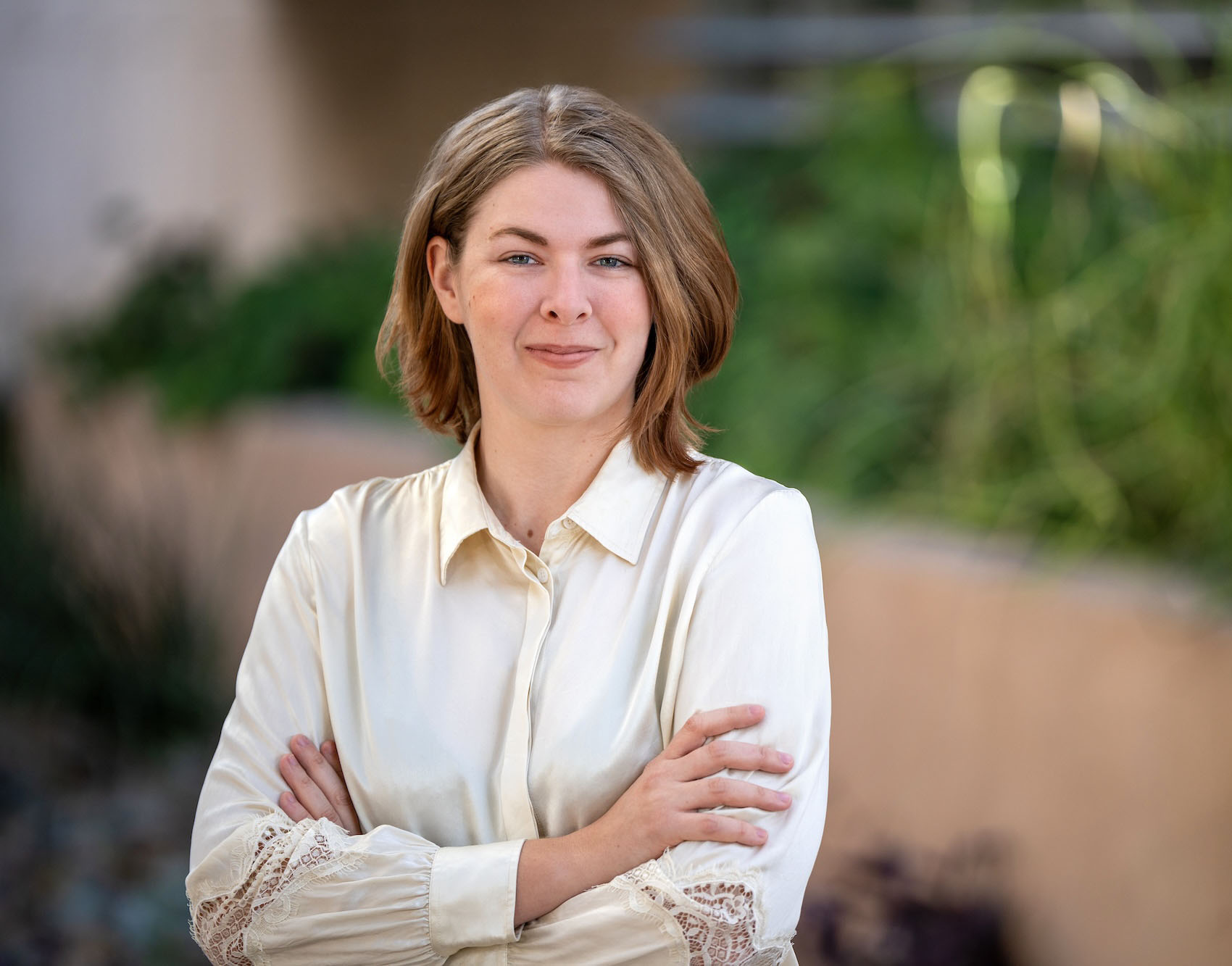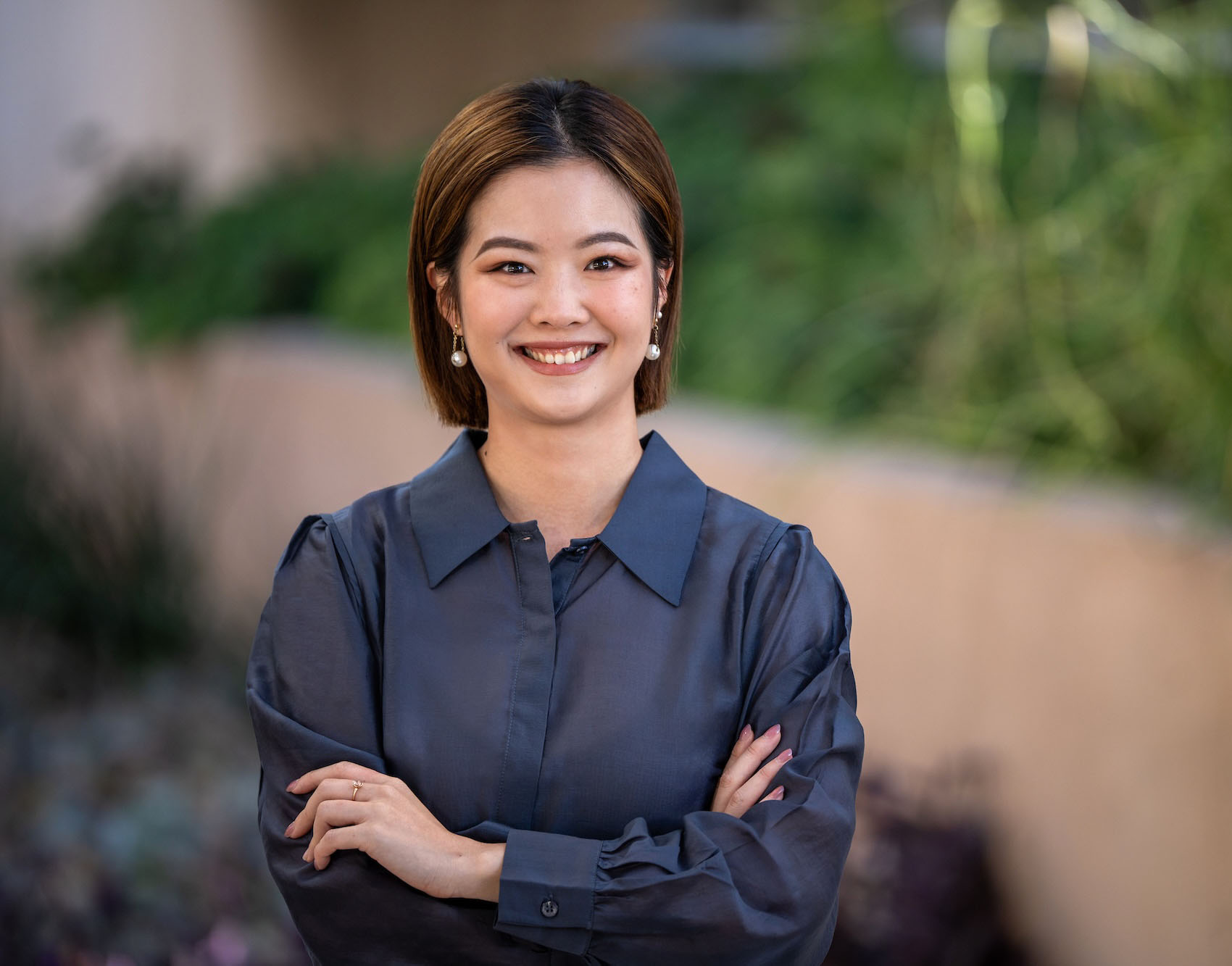
Startup founders leave the Full-time MBA program with new level of confidence
Business owners and Full-time MBA alumni Melissa James and Jye-Ling Lu graduated with increased skills, networks, and confidence in their ability to succeed.

Entrepreneurs Melissa James (MBA '24) and Jye-Ling Lu (MBA '24) are recent graduates of the W. P. Carey Full-time MBA program. Both James and Lu came into the program as business owners, and both had been interested in pursuing their master's to help their startups thrive.
"An MBA was something that I'd wanted for a long time at that point," James says. "Especially with my business and coming up against certain obstacles, [I thought] 'I really wish I had some kind of formal education in business.'"
James is the co-founder of We Don't Lift, a motorsports safety gear company started in 2015 with her business partner. From driver gear to car parts, they provide all aspects of safety from their headquarters in Tempe, Arizona.
Lu founded her company, The Curvyou, with her twin sister in April 2021. The Curvyou is an inclusive sportswear brand established in Taiwan. From accessories to workout sets, their activewear offers comprehensive sizing, and their marketing highlights inclusivity and body positivity in a way that is rarely seen in Asian markets.
James and Lu chose the W. P. Carey Full-time MBA because of the unique networking and scholastic opportunities offered in the two-year program. Both have crossed the graduation stage saying they are more confident in themselves as entrepreneurs because of their ASU education. The W. P. Carey School sat down with James and Lu to discuss their entrepreneurship journeys and their takeaways from the Full-time MBA program.
Why W. P. Carey?

James and Lu heartily agree on the most important draws to the W. P. Carey classroom for business owners — the unique networking opportunities, the applicability of the education, and the resounding support.
"There is one thing that caught me, and that is the size of the cohort," Lu tells us. As an international student with English as a second language, she was concerned about not being seen in the larger cohorts of other programs. "When I saw the smaller cohort, [I said] 'OK, I have to do this.'"
Lu recounts another aspect that spoke to her as a business owner, and that was how applicable classroom learnings were to her blooming business. "I felt like every class I took, I could apply into my business," Lu says. "There would be an example or new knowledge taught by the professor, and I would relate it to my business saying, 'I wish I had known this one better or sooner so I could have used it.'"
"I did the same exact thing," agrees James. "It was the best way to study. If I can apply it to my business, then I understand this concept."
James and Lu weren't the only ones who were interested in the real-world applications of newly acquired knowledge and skills. "I think another aspect is that your classmates also are interested about how to apply the knowledge to your business," Lu says. "During the summer, [a classmate] helped me with a project doing market research for The Curvyou. It was a full two-month presentation deck. That was really cool."
James echoed this sentiment. "At the beginning of the program, I had really bad imposter syndrome," she admits. "Even though I started my own business, I came into the program super self-conscious. I didn't feel like I could keep up with all of the amazing people that I met."
Her turning point? The support from the entire W. P. Carey community.
"Everyone was so supportive the entire time, telling me how amazing and strong I was, how I was here for a reason," James continues. "Not just the cohort, but the mentors and the professors. That's the most incredible gift that this MBA program has given me. I feel much more confident going forward."
Why entrepreneurship?

Lu and her twin sister started The Curvyou when they realized the unrealistic beauty standards in Asia also impacted the clothes that were available to them. "What's wrong with this society?" Lu questions. "I wanted to change and raise awareness that it doesn't matter what type your body is, you're still going to be pretty… some online brands in Taiwan only offer one size…. It's still really new in Taiwan, showing that it's fine to be whatever size you are, so I think that's a connection I make with my customers."
"Instead of just saying, 'This is wrong,' you actually went to do something about it," James adds. The Curvyou's social following, growing profits, and global sales are a testament to Lu's determination.
The story behind James' business started with a car accident that left her scared of driving. It was not until she got to ASU as an undergraduate student and happened upon a car club that she decided to conquer her fear. "I got over my fear of the car thing," James shares. "I went from crying in the passenger seat to driving on the track in a race car."
This newfound passion and her intent to improve vehicle safety came together in We Don't Lift. The operation has grown tremendously — from selling a few helmets from the back of a truck to a successful storefront. "In 2021 we hit $1 million gross in sales," James says. "And we've been maintaining a little bit above $1 million since then."
Not only have James and Lu found confidence in their entrepreneurial education at ASU, but they have found ways to hone their craft as well. "I got a lot more polished," Lu shares of her experience in one of her entrepreneurship classes. "They were really preparing us for pitches." Lu was able to find potential business partnerships from classes as well with other ASU students, and built her network more broadly.
"I wish I'd taken that class," James adds. "When I would go to work before, I wasn't setting up partnerships with other brands and I didn't have a pitch deck… that polish you're talking about is really important."
What's next?
Both James and Lu have expansion plans for their businesses — James is in the works of finding a site to build a completely new storefront for We Don't Lift, and Lu is in the process of taking The Curvyou and its marketing more global.
Outside of their thriving startups, the two plan to find additional success in careers in strategic consulting and ecommerce. Their hope is to build their businesses to the point of being autonomous, and then continue opening new ventures as well. "This wasn't my first business," James says, "and it won't be my last."
They both had kind words for their time in W. P. Carey as they reflect on their entrepreneurial journey. James tells us her key transformation is, "that confidence that I have I gained. I have been able to network with a bunch of different companies. I walk into the room now with confidence where before I would have sent my cofounder to network."
"Yes, I used to think that I am just a small business," Lu adds. "Now, we know that we are different, and we know the value that we create."
Both encourage aspiring entrepreneurs to stay confident in themselves and stick with the process through difficult times. "For both entrepreneurship and the MBA program, there will be days when you are faced with such adversity, you will feel like you've made a terrible mistake," James says. "There is no guarantee that at the end of the day that your risk is going to succeed. My first successful business was my fifth."
"The difference for me was I had a support network," she adds. "Have a real support network of people who are really going to push you... It's about everyone pushing you through, and then turning around and giving that back."
Lu's advice was simple, echoing the need for confidence and self-trust to succeed in business. "Put yourself out there and don't be afraid of being different or being criticized. It's about going out there for yourself." Both Lu and James' stories show how an idea combined with drive, passion, and education can lead to great things.
Ready to learn more about the ASU MBA?
Request information directly from our graduate recruiting team. We can't wait to meet you!
Latest news
- Artificial intelligence in business master's degree helps Nathan Merriman combine business strategy with technology
Nathan Merriman (MS-AIB '25) had been working in business for a few years when he learned about…
- How the Executive MBA empowered Scott Gates to be a mission-driven leader
Scott Gates (BS Marketing '04, Executive MBA '15) had a very positive experience during his…
- Fall 2025 W. P. Carey Dean's Medalists honored at celebratory luncheon
Top grads from each program recognized for academic excellence and lasting impact on the ASU…